


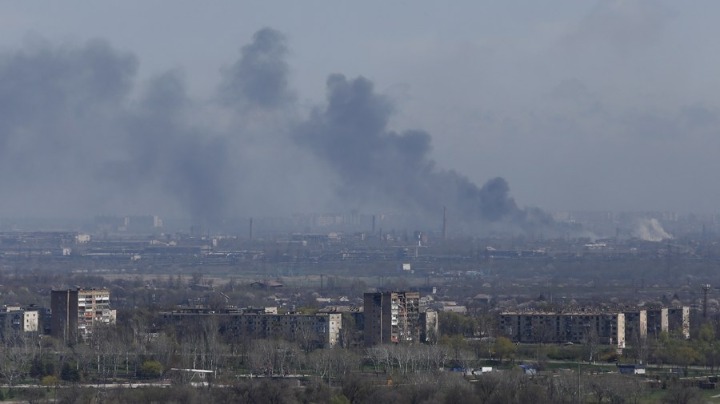
Russia's President Vladimir Putin says his country will continue its yearlong "special military operation" in Ukraine, and he accused the US-led NATO alliance of fanning the flames.
Russia-Ukraine conflict would have cost world economy $1.6 trillion in 2022, according to a study published by the German Economic Institute.
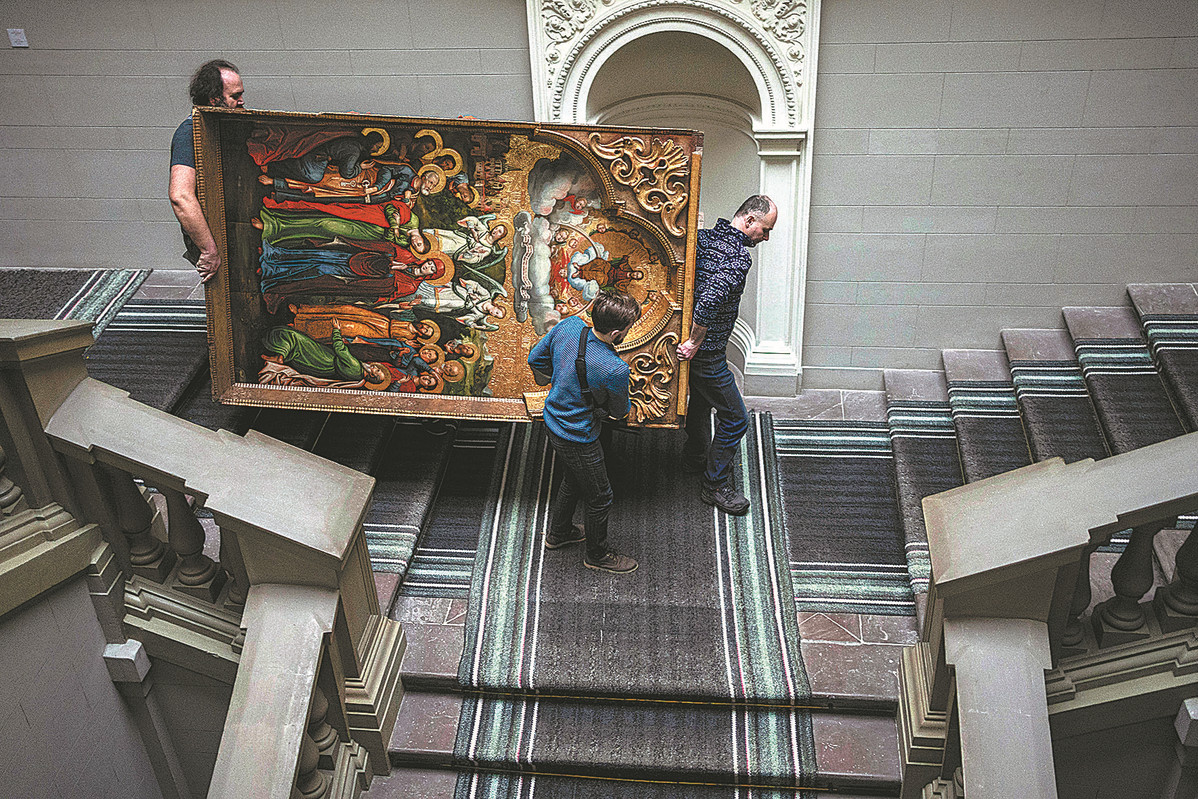
Russia and Ukraine will hold a third round of talks, likely on Monday, about ending hostilities.
David Arakhamia, a Ukrainian delegation member and the parliamentary faction leader of Ukrainian President Volodymyr Zelensky's party, confirmed in a social media post that new meetings will be held, but provided no details.
According to Interfax news agency, Russian negotiator Leonid Slutsky said, "The third round really could take place in the coming days, possibly on Monday."
Russia's TASS news agency quoted Slutsky as saying that in the second round, Ukraine had shown some openness to reaching an agreement.
Since Russia launched the "special military operation" against its neighbor on Feb 24, Ukrainian and Russian delegations have had two rounds of talks.
On Saturday, Ukraine said that the talks had not produced results, but that it would keep pursuing negotiations.
During a phone call with Turkish President Recep Tayyip Erdogan on Sunday, Putin said the suspension of the special operation to protect Donbass is possible only if Ukraine stops fighting and complies with Russian demands.
Putin confirmed Moscow's readiness for dialogue with Kyiv and its foreign partners, but he was aware of "Kyiv's attempts to delay the negotiations".
The Ukrainian delegation should show a more constructive approach at the new meeting, Putin stressed.
Russian Foreign Minister Sergey Lavrov said on Saturday that Zelensky's attempt to secure direct NATO assistance in the conflict was not helping the talks, but that Moscow was ready for a third round.
Zelensky criticized NATO on Saturday for ruling out a no-fly zone over Ukraine, but Putin spoke of "colossal and catastrophic consequences not only for Europe but also the whole world" if it were to be established.
"The current Ukrainian authorities must understand that if they continue to do what they are doing, they are putting in question the future of Ukrainian statehood," Putin warned on Saturday.
Russia and Ukraine agreed on Thursday on a cease-fire to open humanitarian corridors so civilians could leave areas of fighting, but it failed on Saturday amid fierce fighting in a number of cities.
Clashing reports emerged on Saturday regarding the death of a Ukrainian identified by media as a member of the country's negotiating team with Russia.
According to local media reports, Denis Kireev, who had been photographed participating in negotiations in Belarus in recent days, was killed by Ukrainian security forces during an attempt to arrest him.
Kireev, the reports said, had been suspected of treason.
A subsequent social media post by Ukraine's Defense Ministry confirmed Kireev's death but said he was an intelligence operative for Ukraine who died in the line of duty.
Agencies contributed to this story.
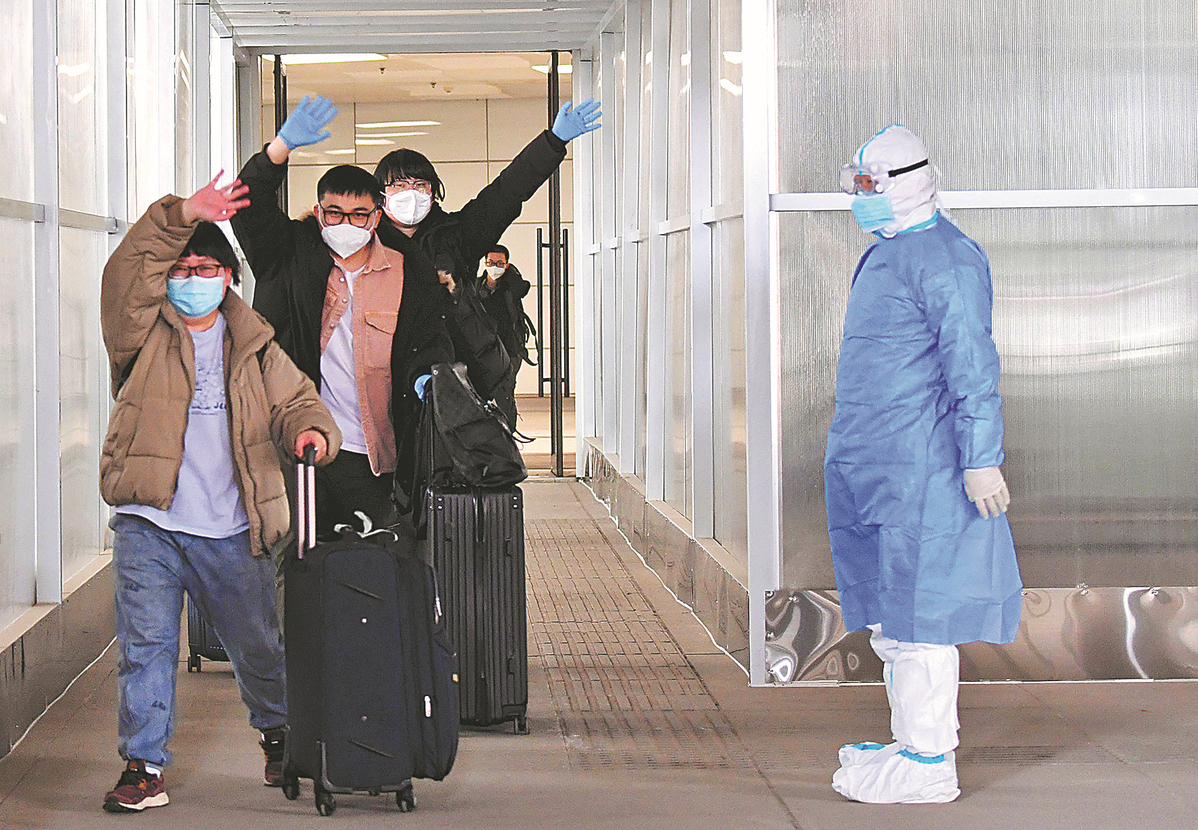
Humanitarian corridors opened to allow civilians to flee, Russia says
Russia declared a partial ceasefire in two Ukrainian cities on Saturday to allow safe passages for civilians fleeing the fighting, Russia's Defense Ministry said.
"From 10 am Moscow time (0700 GMT), the Russian side declares a cease-fire and the opening of humanitarian corridors to allow civilians to leave Mariupol and Volnovakha," the Russian Defense Ministry was quoted by Russian news agencies as saying.
The humanitarian corridors and exit routes were agreed with the Ukrainian side, the ministry said. It would be the first breakthrough in allowing civilians to escape the war.
Mariupol and Volnovakha, located in Ukraine's extreme southeast corner near the Russian border and Crimea, have borne the brunt of some of the most intense fighting in recent days.
"In Mariupol and Volnovakha, evacuation humanitarian corridors are being prepared for opening, and columns of those to be evacuated are being formed. The parties temporarily ceased fire in the area of corridors," tweeted Mykhailo Podoliak, adviser to the head of the office of Ukrainian President Volodymyr Zelensky.
However, late on Saturday, the Ukrainian president's office said the evacuation effort was stopped in the city of Mariupol because the area remained under fire.
At the same time, the Russian and Ukrainian delegations are expected to hold a third round of talks in the coming days. During a telephone conversation with German Chancellor Olaf Scholz on Friday, Russian President Vladimir Putin said he hoped for a reasonable and constructive position of the Ukrainian side in the next round of talks.
The Kremlin said Putin reiterated that Russia is open for dialogue with Ukraine, but insisted "the implementation of all of Russia's demands".
On Saturday, Kremlin spokesman Dmitry Peskov said Russia's special military operation is not aimed at dividing Ukraine as Russia just seeks to ensure its own security, and Moscow is waiting for the third round of talks.
Peskov responded on concerns relating to the fire at Ukraine's Zaporozhye Nuclear Power Plant after fierce fighting on Friday. He said the station continues to operate normally, and the "nuclear reactor, the heart of the station, was never touched".
The cease-fire came as Putin signed into law on Friday a bill introducing jail terms of up to 15 years for fake news on the Russian army.
The bill, adopted by lawmakers earlier on Friday, sets out jail terms of varying lengths and fines on people who publish "knowingly false information" about the military, with harsher penalties to hit when dissemination is deemed to have serious consequences.
Putin also signed a bill that would allow fines or jail terms of up to three years for calling for sanctions against Russia.
Russia's media watchdog said on Friday it had restricted access to the BBC and other independent media websites, and blocked social media giant Facebook.
Two flights chartering evacuated Chinese citizens from Ukraine arrived in China on Saturday, the first of such flights. One arrived in Hangzhou, Zhejiang province, at 5:41 am, and the other in Zhengzhou, Henan province, at 9:46 am.
Wang Qingyun in Beijing contributed to this story.
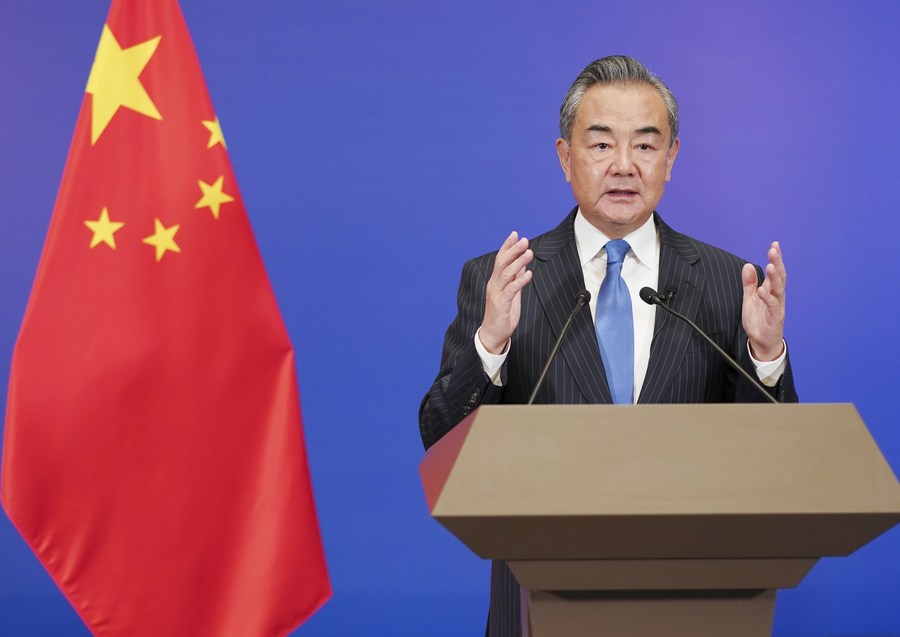
China will support any endeavor that helps alleviate the Ukraine crisis and enables its political settlement, and the nation encourages Russia and Ukraine to continue their direct negotiations, State Councilor and Foreign Minister Wang Yi said on Saturday.
Speaking with United States Secretary of State Antony Blinken by telephone, Wang said that the international community should continue supporting the talks between Russia and Ukraine until the talks produce results and peace.
Beijing also supports dialogue on an equal footing between the US, the North Atlantic Treaty Organization, the European Union and Russia that faces up to the contradictions and problems accumulated over the years, he said.
He highlighted the importance of attaching importance to the negative influence of NATO's eastward expansion over the security environment of Russia, saying that a balanced, effective and sustainable European security mechanism should be formulated under the principle of indivisible security.
The Chinese diplomat also expressed Beijing's concern over some words and deeds of Washington, which he said goes against the consensuses reached by the two presidents during their virtual summit last year.
He urged the US side to stop encouraging and supporting "Taiwan independence" moves, cease its interfering in China's domestic affairs and uphold the big picture of Sino-US relations with concrete actions.
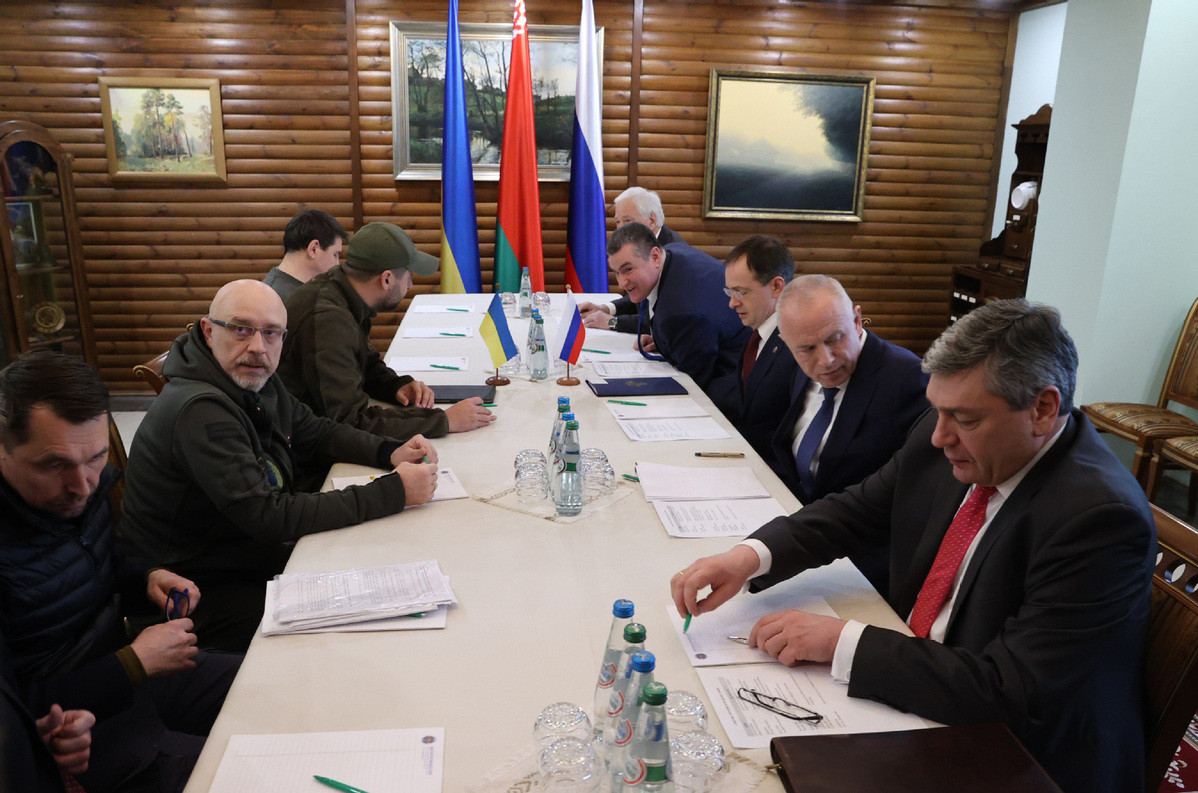
KYIV -- Ukraine and Russia will hold the next round of peace talks on Monday, David Arakhamia, member of the Ukrainian delegation, said Saturday.
"The third round of talks will take place on Monday," Arakhamia wrote on Facebook.
Ukrainian Presidential Advisor Mykhailo Podolyak said Friday the third round of talks between Ukraine and Russia will take place on Saturday or Sunday, according to local media.
Russian President Vladimir Putin said in a telephone conversation with German Chancellor Olaf Scholz Friday that Russia is open to dialogue with Ukraine. He hoped that Kyiv would take a "reasonable and constructive stance" during a third round of talks between Russia and Ukraine.
Ukraine and Russia held the previous two rounds of talks on Feb 28 and March 3.
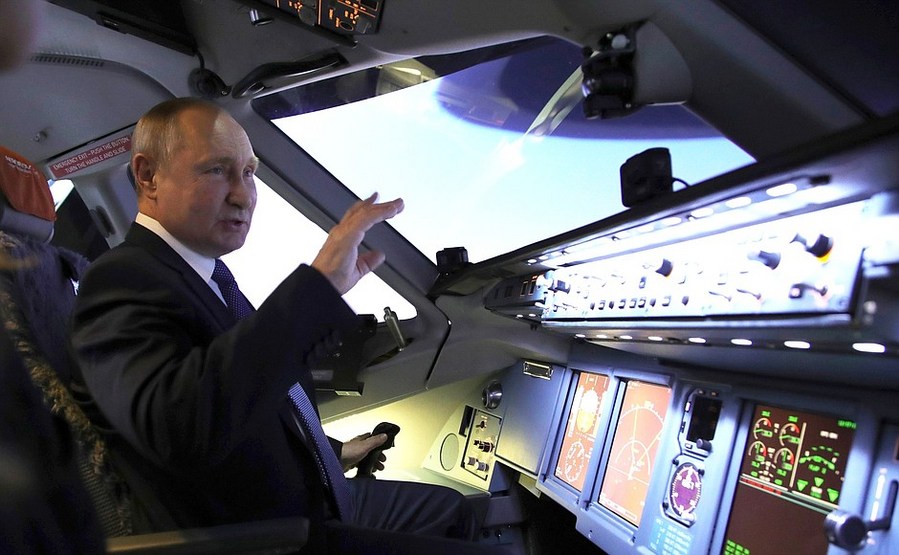
MOSCOW -- Russia has "practically" completed the mission of destroying Ukraine's main military infrastructure, including weapon warehouses, ammunition depots, aviation and air defense systems, President Vladimir Putin said Saturday.
Russian forces will fulfill all their assigned tasks and the operation in Ukraine is proceeding in accordance with the plan and schedule, Putin said at a meeting with women flight crews of Russian airlines.
Commenting on a new wave of Western sanctions, Putin said they are akin to a "declaration of war."
He stressed that there is no need to introduce a state of emergency in Russia.
It was "a difficult decision" to launch a special military operation in Ukraine, but there are "absolutely real threats" to Russia, the president said.
If Ukraine joins the North Atlantic Treaty Organization, the whole military bloc is obliged to support Kyiv militarily and Ukraine may get into Crimea, leading to direct clashes between Russia and NATO, Putin warned.
As Russia demands demilitarization of Ukraine, Putin said there are many different options on the negotiating table with Kyiv.

Russian forces seized control of Europe's largest nuclear power plant in southeastern Ukraine on Friday, the Russian Defense Ministry said.
The Zaporizhzhia NPP power station is located on the Dnipro River of Ukraine, and produces a fifth of Ukraine's electricity.
Russian forces took full control of the Zaporizhzhia site after a battle with Ukrainian troops on Friday evening, Russian Defense Ministry spokesman Igor Konashenkov said at a briefing. The fierce fighting set an adjacent training facility of the power station on fire.
The blaze had prompted global concern, with the United States and the United Kingdom calling for an end to fighting in the area.
There was no sign of a radiation leak. Essential equipment at the nuclear power plant was unaffected after the fire, with no change in radiation levels, the International Atomic Energy Agency said.
Of the six reactors at Zaporizhzhia, the State Nuclear Regulatory Inspectorate of Ukraine said one is in operation and producing power, one has been turned off and four are being cooled to prevent overheating.
The regulator did not say, however, what each reactor's status had been before the fire. The Ukrainian nuclear regulator said in a statement that the hours-long fire had been extinguished at 6:20 am local time, and plant staff were continuing to operate the reactor and supply power according to normal safety rules.
The Ukrainian State Emergency Service also said the blaze did not affect "essential" equipment at the plant.
Ukraine's nuclear facilities have been a major point of concern since Russia's "special military operation" last week as the 1986 Chernobyl disaster, also in Ukraine, left hundreds dead and spread radioactive contamination west across Europe.
The fighting between the two countries seemed to be continuing when the second round of talks between Russian and Ukrainian delegations ended on Thursday evening without a cease-fire agreement.
"The second round of negotiations is over. Unfortunately, the results Ukraine needs are not yet achieved," Ukraine's presidential adviser, Mykhailo Podolyak, said on social media following the meeting.
Still, Podolyak said the talks did produce a "solution only for the organization of humanitarian corridors".
Russian Foreign Minister Sergey Lavrov said that Moscow will continue to insist that any peace agreement with Ukraine must include a promise that Ukraine will "demilitarize". Russia has also signaled it wants to discuss Ukraine adopting a "neutral status" and agree to abandon its ambition to join NATO.
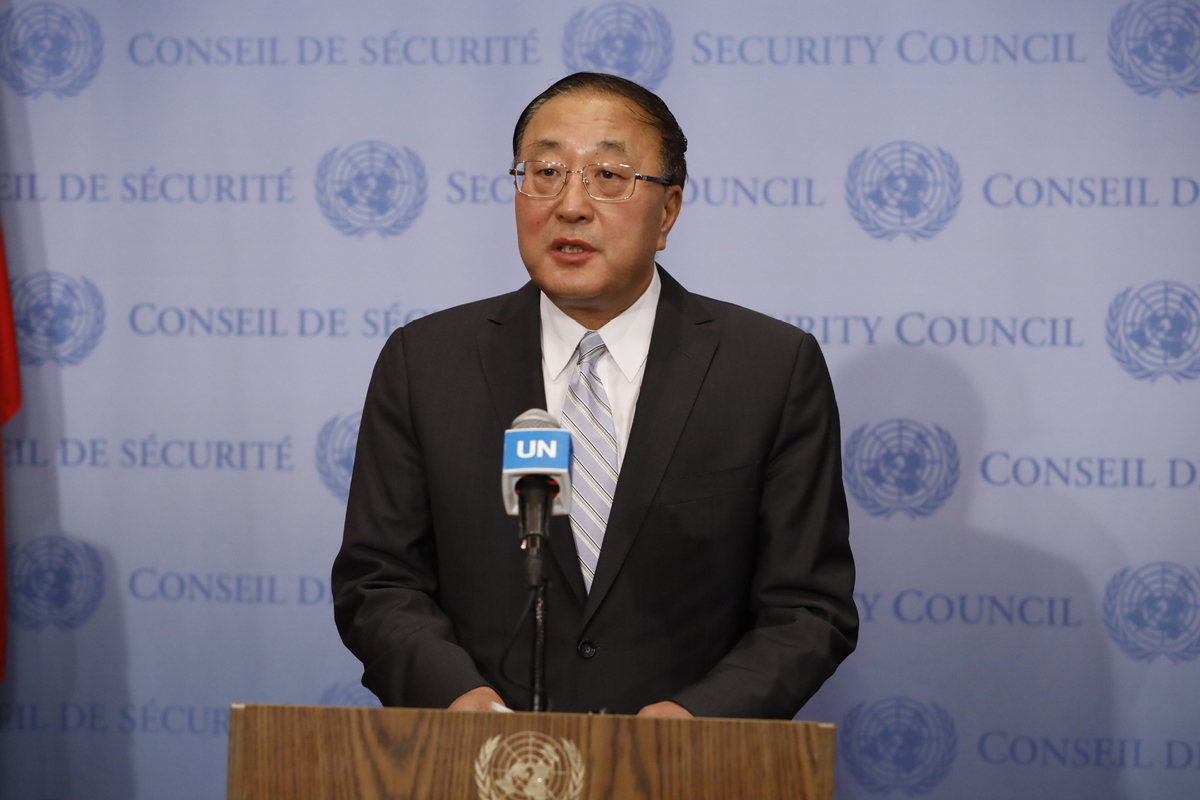
China's ambassador to the United Nations on Friday urged relevant parties to act with caution and work together to ensure the safety of nuclear facilities inside Ukraine.
"China pays close attention to the latest developments in Ukraine, and expresses our concerns over the relevant reports about the Zaporizhzhia nuclear power plant," Zhang Jun, China's permanent representative to the UN, told a Security Council briefing on the safety of nuclear facilities in Ukraine.
According to the information the International Atomic Energy Agency(IAEA) got from the Ukrainian nuclear authority, the main equipment of the nuclear power plant remains intact, and the level of radiation unchanged, said Zhang.
"We also noticed the information and clarification provided by Russia on the relevant matters," said Zhang. "China attaches great importance to nuclear safety and security, and hopes that the parties concerned will act with great caution, and with specialized technical assistance from the IAEA Secretariat, work together to ensure the safety of relevant nuclear facilities inside Ukraine," he said.
The Ukrainian crisis is still undergoing complex changes, said the envoy. "The most important thing right now is to ease tension, avoid more civilian casualties, intensify diplomatic efforts, and get back as soon as possible to the track of political settlement," he said.
Zhang pointed out that Russia and Ukraine have held two rounds of direct dialogue and negotiations, and have reached preliminary agreement on setting up a humanitarian corridor. "China welcomes this, and hopes that it can facilitate better protection of civilians and help with the safe evacuation of all foreign nationals, including Chinese nationals," he said.
"We encourage Russia and Ukraine to remain committed to the overall direction of political settlement, and reach a negotiated solution that accommodates the legitimate concerns of the two parties and contributes to Europe's lasting peace and security," said Zhang.
China welcomes all diplomatic efforts conducive to political settlement, he said. "We have played and will continue to play a constructive role to this end. The international community should stay cool-headed and rational, and adopt a responsible, impartial and objective attitude to create a sound atmosphere and conditions for direct negotiations between the parties concerning."
Any action must contribute to de-escalation and diplomatic settlement, rather than adding fuel to the fire, leading to further escalation and deterioration of the situation, Zhang emphasized.
Ukrainian authorities on Friday said the Russian military has captured Zaporizhzhia nuclear power plant, the largest one in Europe, in southern Ukraine. The plant was seized following a shelling which caused a fire at the plant, the State Inspectorate for Nuclear Regulation of Ukraine said in a statement on Facebook.
Russian Defense Ministry spokesman Igor Konashenkov confirmed on Friday that Russia's armed forces have taken control of the nuclear power plant.
The IAEA said Friday that it was informed by Ukrainian regulatory authorities that there has been no leak of radiation at the plant.
The plant's six reactors were not affected by the blaze, which has been extinguished, IAEA Director-General Rafael Grossi told a news conference.
In normal times, the Zaporizhzhia plant provides more than half of Ukraine's nuclear power and contributes nearly 25 percent to Ukraine's overall power generation.
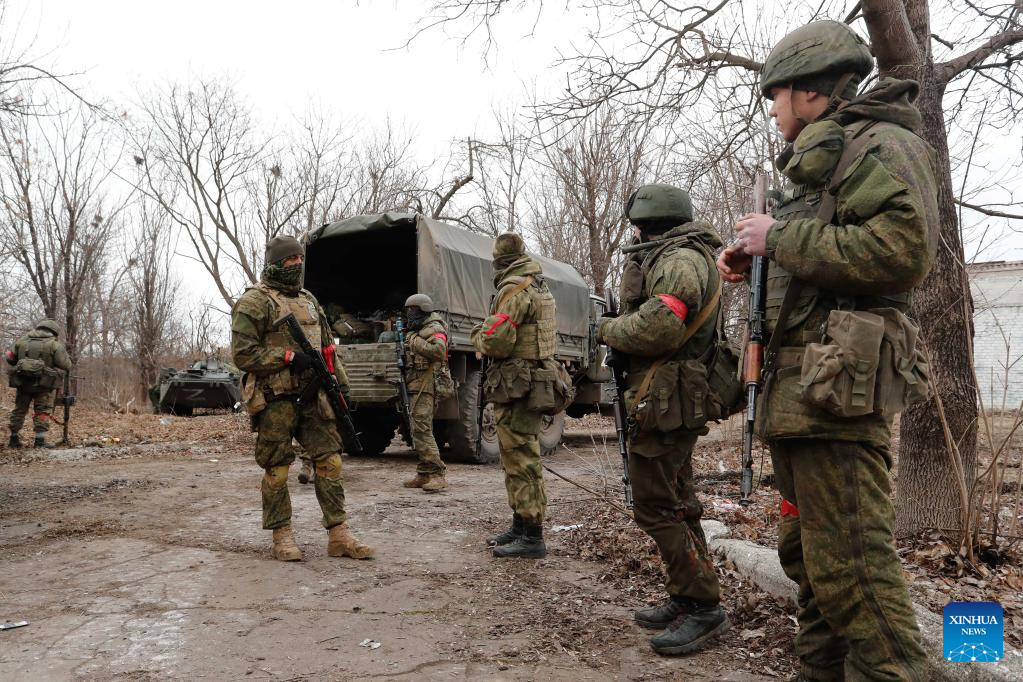
With Iran among those nations identifying the United States' actions as the root cause of the Ukraine crisis, experts said the European conflict stems from decades of provocative policies from the superpower and its Western allies.
Iran's Supreme Leader Ayatollah Ali Khamenei, in a televised speech on Tuesday, said Teheran "advocates ending the war in Ukraine". But he said a solution to any crisis only works when the root cause has been identified. "The root of the crisis in Ukraine is the policies of the US and the West," he said.
"The US regime creates crises, lives off crises and feeds on various crises in the world. Ukraine is another victim of this policy," Khamenei was quoted as saying on his English-language website.
Nagapushpa Devendra, an analyst at the Manohar Parrikar Institute for Defence Studies and Analyses in New Delhi, said Iranian society believes that US policies toward Russia dating from the presidency of Bill Clinton "have led to the current situation in Ukraine".
Devendra said that Clinton in 1990 decided to let NATO remain in force despite the military alliance having served its purpose of defending the member states against any act of expansion by the Soviet Union.
Although formed in 1949 in response to the emerging Cold War, NATO has outlived that conflict. The alliance's subsequent expansion to include many former Eastern Bloc states has troubled Russia.
In 2019, the Ukrainian parliament passed a constitutional amendment stating Ukraine's commitment to joining NATO. In December 2021, the Russian Foreign Ministry demanded "legal guarantees" that NATO would not expand eastward.
Kamaruzaman Bin Yusoff, a Middle East political analyst and former professor of Middle Eastern politics at Universiti Teknologi Malaysia, said the current crisis started when the US and European powers were "trying very hard to control Ukraine".
Iran's supreme leader said the Western powers' support for the governments that they have placed in power is a mirage, and "all governments should realize this".
Khamenei said Ukraine and Afghanistan are examples of the West's unreliability.
Asif Shuja, an Iran expert and senior research fellow at the Middle East Institute at National University of Singapore, said Iran's reaction to the Ukraine crisis has so far been "measured".
Many in the West also believe that "the insistence of the US to expand NATO closer to Russia's backyard was not a very prudent idea", Shuja said.
Yusoff said: "I think this is the time when some countries who are really concerned … to bring about peace in the world should hand-in-hand help each other to bring all these big powers together."
Xinhua contributed to this story.
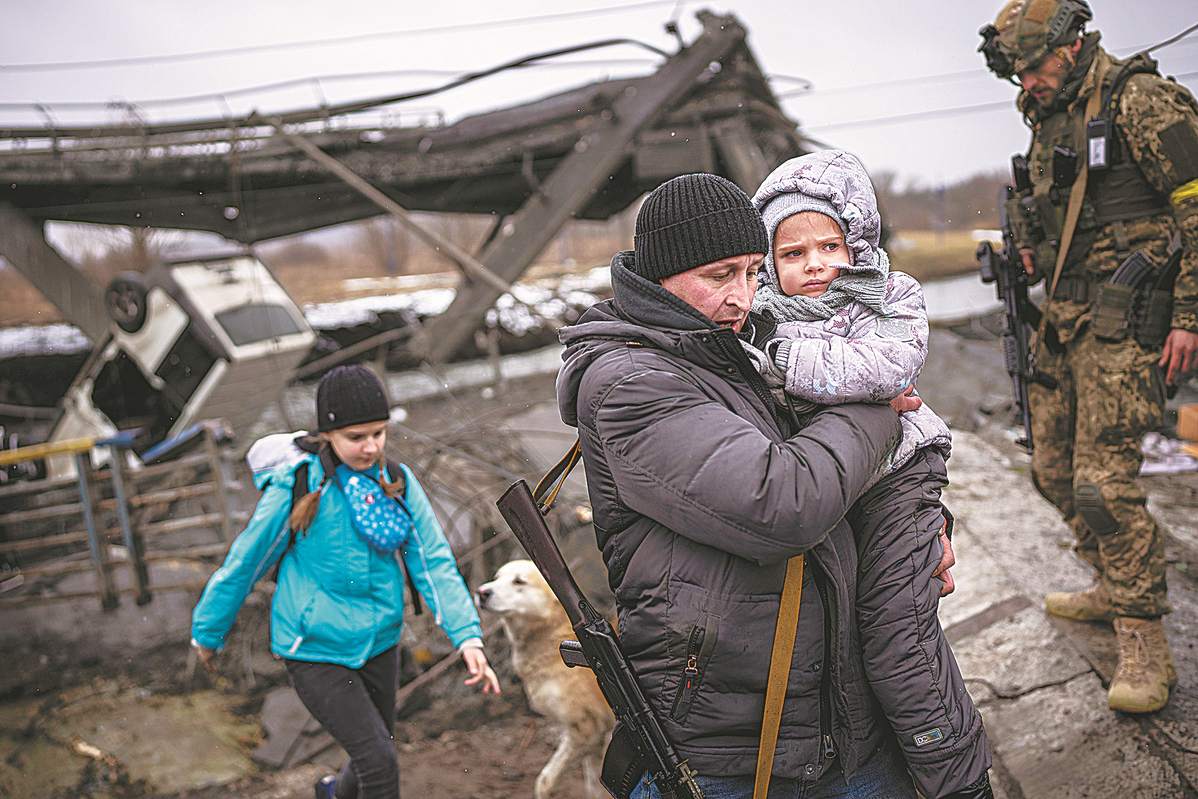
Outflows from conflict the most rapid seen this century, refugee agency says
GENEVA-The United Nations refugee agency said on Thursday that 1 million people have fled Ukraine in the first week of the conflict, an exodus without precedent this century for its speed.
The tally from the UN High Commissioner for Refugees amounts to more than 2 percent of Ukraine's population-which the World Bank counted at 44 million at the end of 2020-on the move across borders in just seven days. The agency cautions that the outflows are far from finished: It has predicted that as many as 4 million people could eventually leave Ukraine, and even that projection could be revised upward.
In an email, UNHCR spokeswoman Joung-ah Ghedini-Williams wrote: "Our data indicates we passed the 1M mark" as of midnight in Central Europe, based on counts collected by national authorities.
On Twitter, UN High Commissioner Filippo Grandi wrote: "In just seven days we have witnessed the exodus of one million refugees from Ukraine to neighboring countries."
Grandi appealed for the "guns to fall silent" in Ukraine so that humanitarian aid can reach the millions more still inside the country.
Grandi's comments attest to the desperation of Ukrainians as artillery fire, exploding mortar shells and gunfire echoed across the country, and the growing concerns across the UN system at agencies like the World Health Organization and the UN Office for the Coordination of Humanitarian Affairs-which launched an appeal for funds with the UNHCR on Tuesday.
The day-by-day figures pointed to the dizzying speed of the evacuation. After more than 82,000 people left on the first day of Russia's "special military operation" in Ukraine on Feb 24, each day after that brought at least 117,000 new refugees, hitting a peak of nearly 200,000 on Tuesday alone, based on the latest UNHCR count. Some longtime agency workers accustomed to dealing with refugee crises said they had never seen anything like this exodus.
Syria, whose civil war erupted in 2011, remains the country with the largest refugee outflows-nearly 5.7 million people, according to UNHCR's figures. But even at the swiftest rate of flight out of that country, in early 2013, it took at least three months for 1 million refugees to leave Syria.
Two years later, in 2015, hundreds of thousands of Syrian and other refugees who had mostly been in Turkey fled to Europe, prompting disarray in the European Union over its response and at times skirmishes and pushbacks at some national borders.
Biggest crisis
So far, UN officials and others have generally praised the response from Ukraine's neighbors, which have opened homes, gymnasiums and other facilities to take in the refugees.
UNHCR spokeswoman Shabia Mantoo said on Wednesday that "at this rate" the outflows from Ukraine could make it the source of "the biggest refugee crisis this century".
According to the latest figures on the UNHCR's online data portal, which had shown 934,000 refugees early on Thursday, more than half of the refugees from Ukraine had gone to neighboring Poland-over 505,000-and more than 116,000 opted for Hungary to the south.
Moldova had taken in more than 79,000 and 71,200 had gone to Slovakia.
Ghedini-Williams said the figures on the data portal reflected a count through midafternoon in Europe, but the agency had received estimates of additional arrivals through the rest of the day and into the evening.
Agencies Via Xinhua
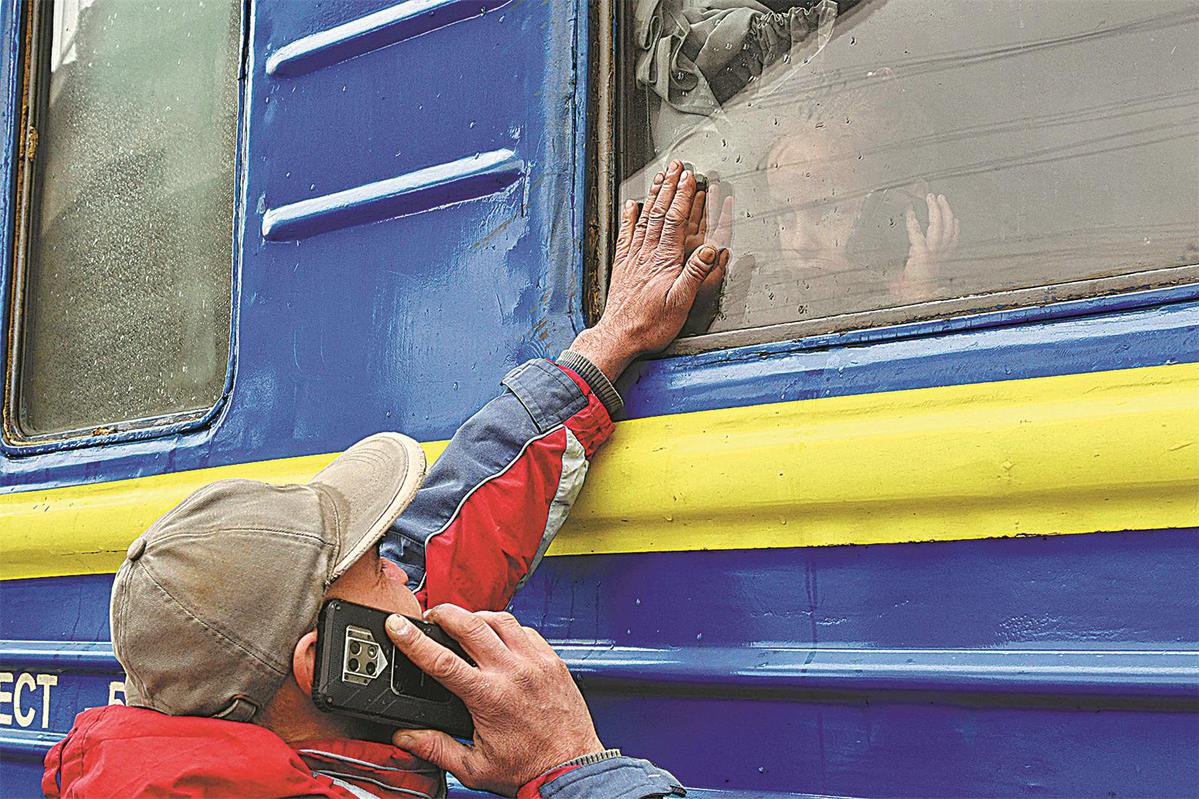
Russian forces are continuing their attempted push through Ukraine from multiple directions, and seized Kherson on Thursday, the first major Ukrainian city they control.
Moscow's victory in the southern city comes amid devastating attacks a week after Russian President Vladimir Putin announced a "special military operation" in Ukraine, while Ukrainians, led by President Volodymyr Zelensky, are putting up "stiff resistance", according to United States officials.
Russian forces have bombarded Ukraine military facilities across the country, including the capital, Kyiv, and its second city of Kharkiv.
Russian troops were in "all parts" of Kherson, Ukrainian regional official Gennady Lakhuta said.
After a three-day siege that left Kherson short of food and medicine, and struggling to collect and bury its dead, Lakhuta also announced he was in talks with "armed guests".
The second round of talks between Ukrainian and Russian delegations started on Thursday in Belovezhskaya Pushcha, a national park in Belarus near its border with Poland.
Ukraine intends to "hold its ground" at the second meeting, said Alexey Arestovich, adviser to the head of the Ukrainian Presidential Office.
The second round of talks may deal mostly with political issues, such as the status of Ukraine, rather than the situation "on the ground", said Ivan Konovalov, director of the Fund for Assistance to 21st Century Technologies.
In the first round of talks, the Russian delegation insisted Ukraine acknowledge Crimea's status as part of Russia, which Ukraine had refused.
"Crimea is part of Russia and it's nonnegotiable," Russian Foreign Minister Sergey Lavrov said in an interview with Al-Jazeera.
Stalled elsewhere, Russian troops continue to make significant advances on the southern front, with troops breaking through in Kherson-opening the path west and north-and besieging the larger strategically vital port city of Mariupol.
Vadym Boychenko, mayor of Mariupol, reported hours of punishing bombardment. The city is now without light, water or heating as temperatures hover around freezing.
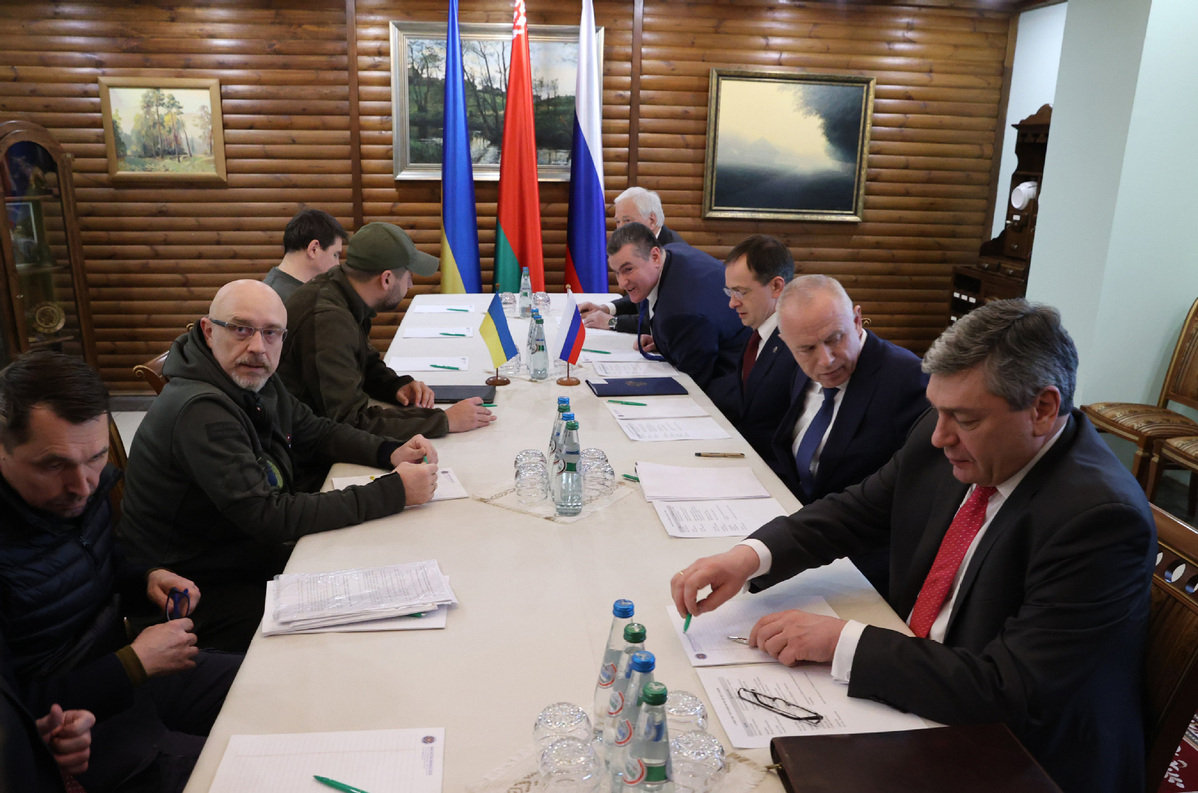
Russia and Ukraine agreed to organize humanitarian corridors to evacuate civilians in the second round of talks in Belarus on Thursday, Advisor to the Head of the President's Office of Ukraine Mykhailo Podoliak confirmed on Twitter.
"There is a solution only for the organization of humanitarian corridors," Podoliak tweeted.
During the talks on Thursday, the two sides discussed military issues, humanitarian issues, and a future political settlement of the conflict, said Russian presidential aide Vladimir Medinsky, also the head of the Russian delegation.
"The positions were made absolutely clear ... On some of them, we managed to reach an understanding," he said, noting that creating humanitarian corridors is "substantial progress."
Russia's TASS news agency reported earlier Thursday that the second round of talks has ended.
Podoliak told a media briefing that the third round of peace negotiations may take place soon, according to Ukrainian media.
Earlier in the day, Ukrainian President Volodymyr Zelensky, when commenting on the peace negotiations, said that "any talks" make sense.
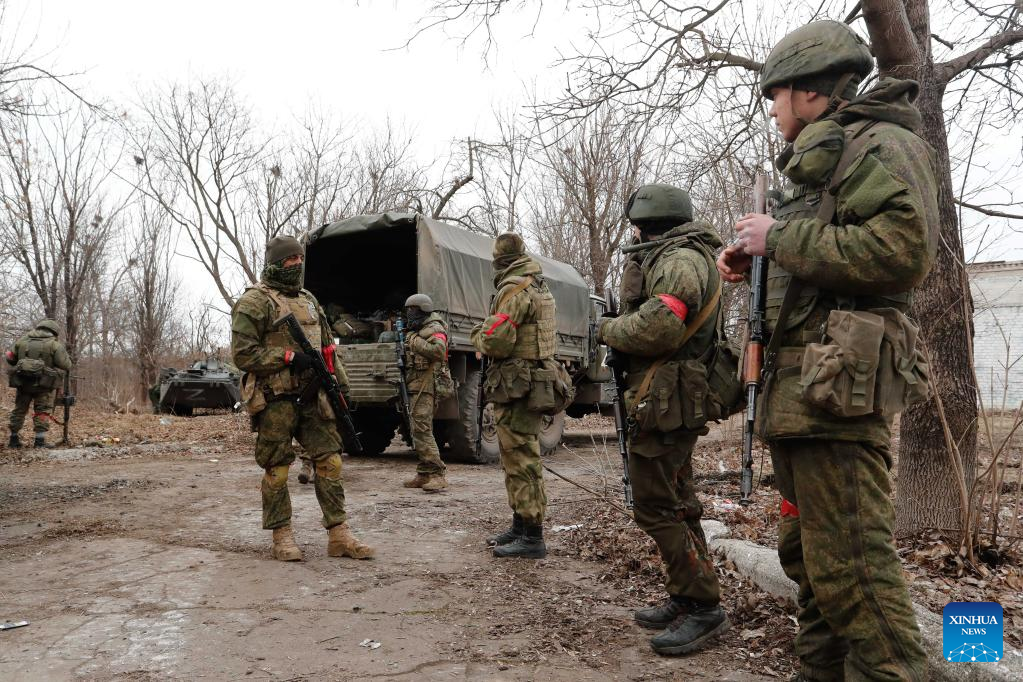
The Ukrainian delegation has left for talks with the delegation of the Russian Federation, Advisor to the Head of the President's Office of Ukraine Mykhailo Podoliak said on Thursday.
"(Leaving) for negotiations with Russia. Already in helicopters," Podoliak posted on Twitter.
According to him, the immediate goal is to agree on the creation of humanitarian corridors, while the rest will depend "on circumstances".
After Russia and Ukraine concluded their first round of negotiations in Belarus on Monday with no clear breakthrough, the second round of talks are expected to be held later Thursday.
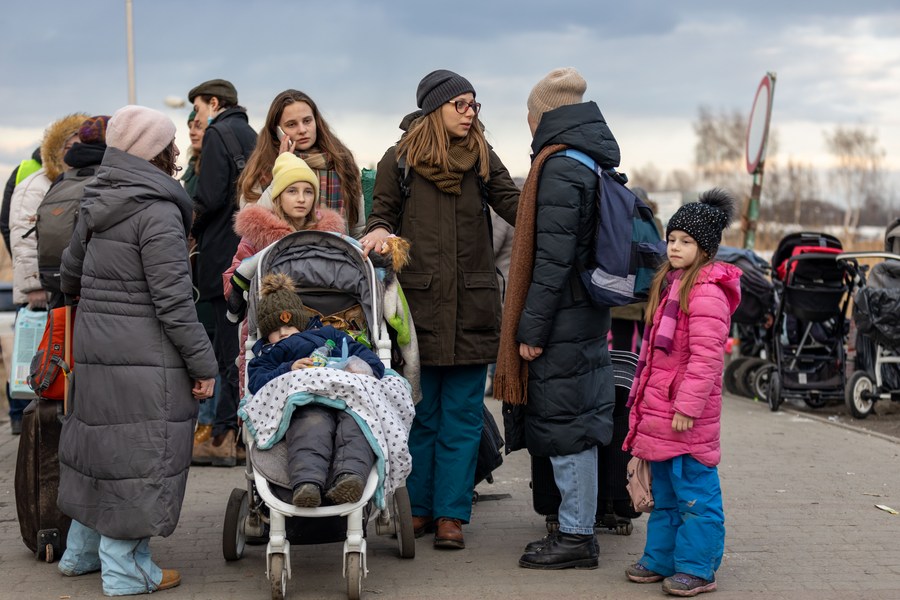
GENEVA -- The World Health Organization (WHO) warned on Wednesday that the ongoing Russia-Ukraine conflict is likely to drive COVID-19 transmission ever higher and in turn increase the risk of large numbers of people developing severe disease.
"WHO is deeply concerned about the unfolding humanitarian emergency in Ukraine," said WHO Director General Tedros Adhanom Ghebreyesu at a press briefing.
"Prior to the conflict, Ukraine had experienced a recent surge of cases of COVID-19. Low rates of testing since the start of the conflict mean there is likely to be significant undetected transmission. Coupled with low vaccination coverage, this increases the risk of large numbers of people developing severe disease," he said, adding that critical shortages of oxygen will have an impact on the ability to treat patients with COVID-19 and many other conditions.
According to the United Nations High Commissioner for Refugees, as of Tuesday, more than 870,000 people had left Ukraine, and that number is expected to increase rapidly, the WHO chief said. "Mass population movements are likely to contribute further to transmission of COVID-19, potentially increasing pressure on health systems in neighboring countries."
Also at the briefing, Mike Ryan, executive director of the WHO Health Emergencies Program, warned that mass population movements as a result of the conflict could possibly not only drive COVID-19 transmission higher but also favor the emergence of new variant of COVID-19 virus.
WHO is delivering essential medical supplies from the hub in Dubai. The first shipment will arrive in Poland on Thursday, including 36 metric tonnes of supplies for trauma care and emergency surgery to meet the needs of 1,000 patients, and other health supplies to meet the needs of 150,000 people. However, it urges to establish a corridor to ensure humanitarian workers and supplies have safe and continuous access to reach people in need.
MOSCOW/KIEV - A new round of talks between Russia and Ukraine is expected to take place Thursday morning in Belovezhskaya Pushcha on the Belarus-Poland border, as military activity continues in Ukraine.
Russian presidential aide Vladimir Medinsky said the Russian delegation headed by him arrived at the negotiating site Wednesday evening.
The Ukrainian side is expected to arrive on Thursday morning, Medinsky said, adding that Russia and Ukraine agreed upon the location for the new round of talks.
Russia's military has established a safe corridor to allow the Ukrainian delegation to move through Ukrainian territory, he said.
The possibility of a ceasefire, among other things, would be discussed during the talks, according to the official.
However, David Arakhamia, parliamentary faction leader of the Party of Servant of the People in Ukraine, said on Facebook that "information that the talks will be held in Belovezhskaya Pushcha is not true. Indeed, the talks will take place, but in another venue. All details will be provided later," the Interfax news agency reported Thursday.
The first round of negotiations between Russia and Ukraine concluded on Monday with no clear breakthrough.
Ukrainian Foreign Minister Dmytro Kuleba said on Facebook that Kyiv was ready to negotiate, but would not comply with "Russian ultimatums".
Kuleba and US Secretary of State Antony Blinken discussed new sanctions against Russia and a new supply of defensive weapons for Ukraine in a phone conversation on Wednesday.
Kuleba emphasized that Ukraine is committed to finding diplomatic ways for settling the conflict with Russia, but Kyiv's allies must show unity in increasing pressure on Russia "until Moscow demonstrates its readiness for constructive negotiations".
On the same day, Russian President Vladimir Putin held several telephone conversations on the situation in Ukraine with foreign leaders, including Kazakh President Kassym-Jomart Tokayev, Indian Prime Minister Narendra Modi and Israeli Prime Minister Naftali Bennett.
The Russian Defense Ministry announced Wednesday that 498 Russian servicemen have been killed in the course of the "special military operation" in Ukraine, while around 3,700 Ukrainian servicemen have been injured and 2,870 others killed.
Earlier in the day, Russian Defense Ministry spokesman Igor Konashenkov said 1,502 Ukrainian military facilities have been destroyed in the Russian operation.
Chinese citizens can take their foreign spouses, parents, or children together with them during an evacuation from Kyiv to Moldova on Wednesday, said the Chinese embassy in Ukraine in a notice published on its WeChat account.
All Chinese nationals who are currently in and around Kyiv are to gather at Teremky terminal station, and will then board buses headed to Moldova.
Foreign spouses, parents or children of Chinese citizens are required to present their passports upon boarding. Those who are traveling by car can also travel with the bus convoy.
China started evacuating its citizens from Ukraine on Monday, with the first batch of about 600 Chinese students leaving Kyiv and the southern port city of Odessa, reported the Global Times citing the Chinese embassy in Ukraine.
They traveled by bus to neighboring Moldova under embassy escorts and police protection, with one evacuee saying the six-hour journey was "safe and smooth".
In another embassy notice issued on Wednesday, Chinese citizens are advised to stay away from military targets as best as they could, to avoid misunderstandings and unnecessary security risks.
China has around 6,000 of its citizens in Ukraine for work or study.
Foreign Ministry spokesman Wang Wenbin told a regular news briefing on Wednesday that the Foreign Ministry and the Chinese embassies in relevant countries will continue to make every effort to protect the safety of Chinese citizens in Ukraine, and continue to provide support and assistance for the evacuation.
The Polish embassy in China said on Monday that Chinese nationals evacuating from Ukraine can enter Poland and stay visa-free for up to 15 days, according to Agence France-Presse.
Agencies contributed to this story.
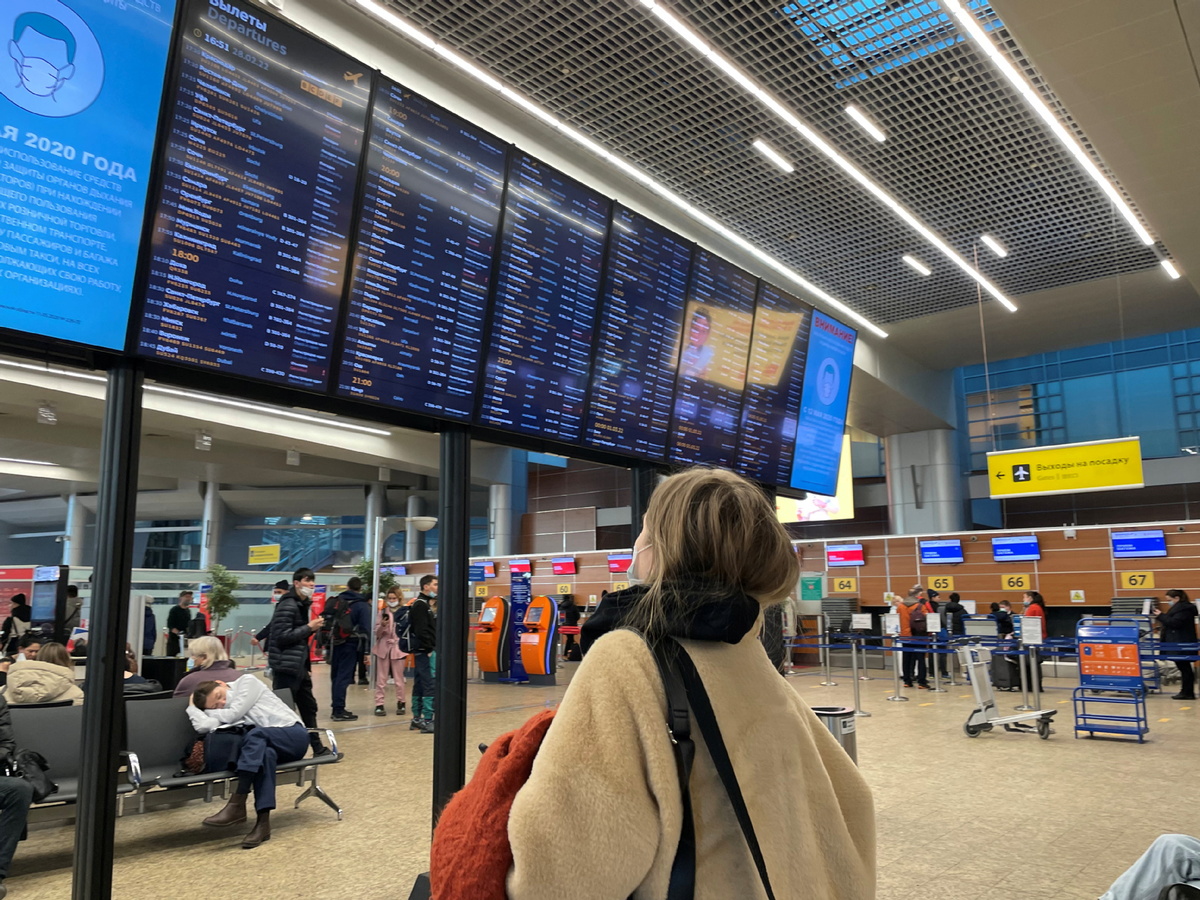
Increasing fuel costs and airspace closures due to the Ukraine conflict are expected to deal another blow to the global airline industry, which has yet to recover from huge losses resulting from the COVID-19 pandemic, analysts said.
A number of airlines that operate between Europe and Asia have had to reroute flights to bypass the airspaces of Ukraine and Russia, leading to increased flying time and higher fuel costs.
"The airspace of Russia serves as part of the shortest North Pole flight route between Asia and Europe," said Zou Jianjun, a professor at the Civil Aviation Management Institute of China. "The closure of the airspace is expected to cause longer flying time and increase flying costs of airlines, and is likely to result in higher flight prices. For carriers, longer flying times will lead to less efficient use of their aircraft and insufficient capacity."
On Monday, it took 11 hours and 11 minutes for a plane operated by German carrier Condor Flugdienst to fly from Frankfurt to Jinan, Shandong province. The flight was two hours longer than usual as the aircraft had to bypass Russian and Ukrainian airspace, according to VariFlight, a China-based civil aviation data service provider.
Air France suspended services to Russia and flights over Russian airspace on Sunday and has changed its flight plans for China, South Korea and Japan. On Monday, Air France flights from Paris to Beijing and Shanghai traveled via Seoul.
Finland's largest airline, Finnair, said it's evaluating alternative routes for some flights to Japan, South Korea and China. It has canceled flights to those destinations until Sunday, and canceled all flights to Russia until May 22.
Before the airspace restrictions, about 600 daily flights that departed from or arrived in Europe flew over Russian airspace. Many carriers have rerouted their aircraft. For example, the number of flights over Kazakhstan airspace on Monday was double the usual figure, according to travel data provider Cirium.
Last year, amid the pandemic, the global aviation industry suffered a loss of $51.8 billion, according to the International Air Transport Association.
"Chinese airlines are relatively less affected by airspace closures at the moment than their European counterparts," said Qi Qi, an aviation industry analyst and writer for Carnoc, a major civil aviation website in China.
"Currently, flights operated by Chinese carriers can fly to Europe over Russian airspace. Besides, the frequency and density of flights between China and Europe is not that high due to the pandemic, and no serious impact is expected for the moment," Qi said.
Meanwhile, the closure of airspace and cancellation of flights have also had an impact on cargo transportation, adding more pressure on the global supply chain.
On Wednesday, xLobo Express, the cross-border logistics arm of Shanghai-based e-commerce platform Ymatou, said that the geopolitical tension is expected to cause an air transportation price increase. The cross-border e-commerce sector is sensitive to fluctuations in exchange rates and the losses caused by wars can be huge, it said in a reply to China Daily.
For Chinese e-commerce retailers involved in cross-border businesses, the situation is expected to cause temporary suspension of logistics or lengthen the time of shipping, which will lead to an increase in product returns by customers, xLobo Express said.
Fan Feifei contributed to this story.
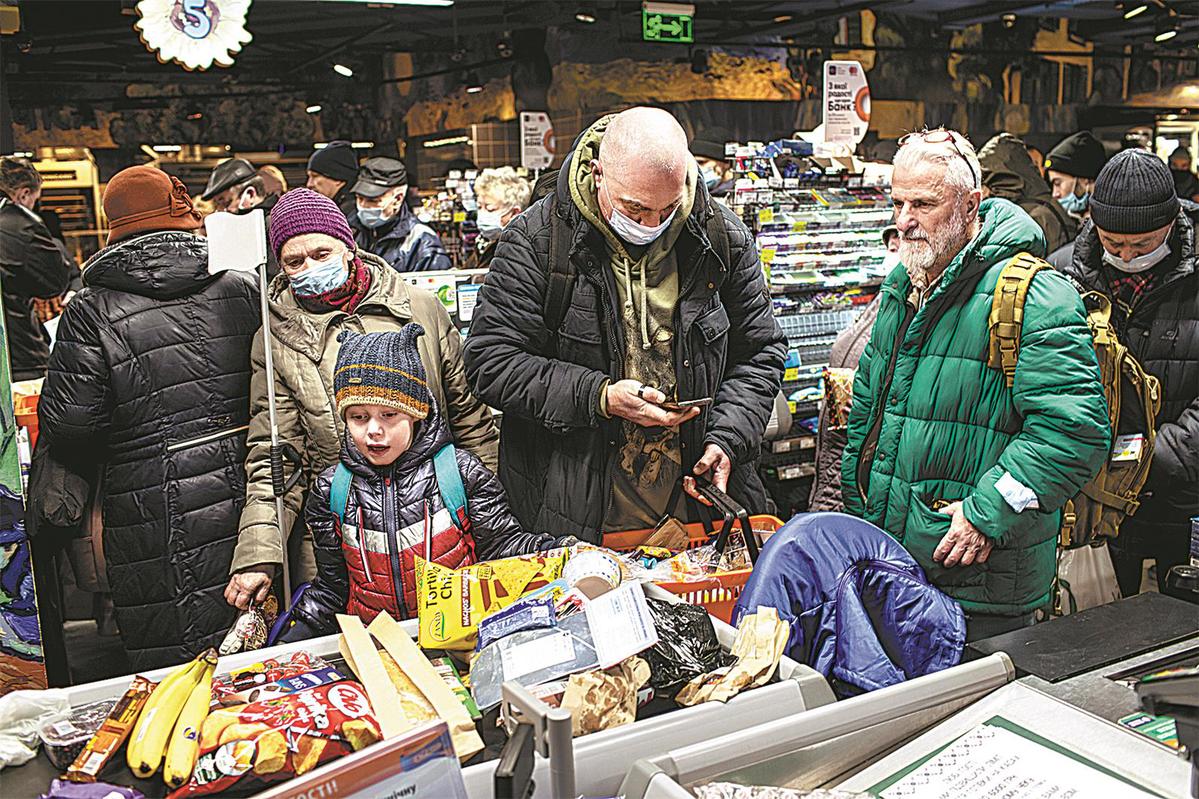
Exposure to Ukraine conflict likely to drive prices, dent mood, experts say
Europe's economy may bear the brunt of the spillover effects of the Ukraine crisis in the form of even higher energy prices and reduced business confidence, analysts said.
Tian Dewen, deputy director of the Institute of European Studies at the Chinese Academy of Social Sciences, said that the world is a global village in which countries are economically interdependent, and any crisis that arises can affect the lives of people everywhere.
One immediate impact of the Ukraine crisis is the hit to Europe's economic recovery against the backdrop of the COVID-19 pandemic.
"The impact of a conflict or exchange of fire between Russia and Ukraine is bound to ripple across Europe and beyond, with knock-on effects on the global economy," Tian said. Russia is the world's third-largest oil producer and one of the world's leading exporters of natural gas, while Ukraine is the world's leading food exporter.
Philip Lane, the European Central Bank's chief economist, has told fellow policymakers that the Ukraine conflict may reduce the eurozone's gross domestic product by 0.3 percent to 0.4 percent this year, according to a Reuters report.
Russia accounts for about 40 percent of imports of natural gas to the European Union and about 30 percent of its crude imports, according to Eurostat, the bloc's statistics agency.
The EU and the United States have imposed sanctions on Russia's biggest banks and its elites, and have frozen the assets of the central bank held outside the country. They have also acted to remove some Russian banks from SWIFT, the payment system used for most international financial transactions.
Tian said energy issues will directly affect European countries, given the reliance of many of them on Russian supplies. Ukraine is a key transit hub for Russian oil and gas. Austria, Italy, and Slovakia import natural gas from Russia, mainly transported through Ukraine. Some Russian-supplied natural gas also reaches Germany and Poland via Ukraine.
Energy prices have been soaring over the past year in Europe, and the Ukraine crisis will make the situation worse, Tian said.
"For many countries, alternative energy solutions are hard to come by in the short term," he said.
Tian said that a characteristic of the EU economy is that, for the most part, its raw materials are supplied from outside the bloc, and local capital-intensive and technology-intensive enterprises are concentrated. Additionally, its own markets lack growth momentum, and many of the region's goods need to be sold outside Europe.
"That is why uncertainty in the world economy will have a greater impact on the EU economy," Tian said. "Soaring energy and raw material prices and supply shortages, as well as global supply chains that have not fully recovered from the COVID-19 pandemic, are all negative factors for the recovery of the European economy."
Business confidence
Tian said that investors and capital typically steer clear of exposure to conflicts, and the uncertainty will hurt business confidence and consumption. This would have a big impact on the European economy, the scholar added.
Chen Fengying, a senior researcher on the world economy at the China Institutes of Contemporary International Relations, said that considering the EU's reliance on Russian energy, there are indications that Western countries may not touch the energy sector in their actions against Moscow.
But the Russia-Ukraine conflict will further stoke inflation in Europe. Aside from energy bills, food prices look set to jump, Chen added.
Russia and Ukraine together account for 25 to 30 percent of global wheat exports, and around 80 percent of global shipments of sunflower seeds, according to the London consultancy Capital Economics.
Chen said that many countries are already paying higher prices because of the conflict. Within the EU, Germany is likely to suffer the most. Its economy is growing slower than many other EU countries.
Germany is sticking to a plan to abandon nuclear energy by this year and has been reliant on Russian energy.
But the country announced on Feb 22 that it would suspend the certification of the Nord Stream 2 gas pipeline, which is worth about $11 billion.
Chen said that if the Ukraine conflict eases soon, there are grounds for optimism that its economic effects will gradually diminish.
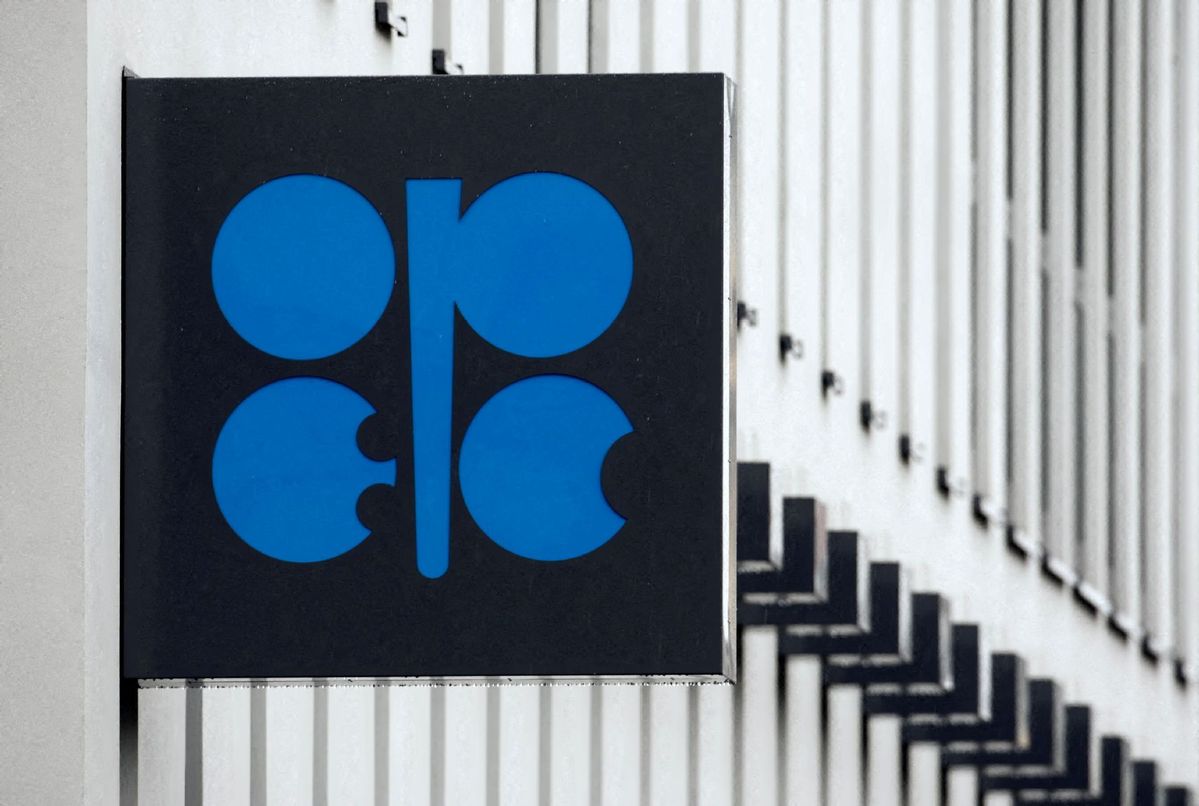
NEW YORK - Oil prices surged again on Wednesday after major oil producers decided to stick to modest output increase despite supply fears amid the Russia-Ukraine conflict.
The West Texas Intermediate (WTI) for April delivery added $7.19, or 7 percent, to settle at $110.60 a barrel on the New York Mercantile Exchange, the highest finish since 2011.
Brent crude for May delivery increased $7.96, or 7.6 percent, to close at $112.93 a barrel on the London ICE Futures Exchange, the highest level since 2014.
The Organization of the Petroleum Exporting Countries (OPEC) and its allies, a group known as OPEC+, announced on Wednesday that it would stick to existing plans for a modest oil output increase of 400,000 barrels per day in April.
The oil alliance noted in a statement after the 26th OPEC and non-OPEC Ministerial Meeting that the current volatility in the oil market is caused by geopolitical developments rather than changes in market fundamentals.
Meanwhile, prices garnered some support after data showed a drop in US fuel stockpiles.
US commercial crude oil inventories decreased by 2.6 million barrels during the week ending Feb 25, the US Energy Information Administration (EIA) reported on Wednesday.
According to the EIA, total motor gasoline inventories decreased by 0.5 million barrels last week, while distillate fuel inventories decreased by 0.6 million barrels.
Oil prices have jumped to multi-year highs in recent days as the ongoing Russia-Ukraine conflict and the far-reaching Western sanctions against Moscow prompted fears about energy supply disruptions from key exporter Russia.
The International Energy Agency announced Tuesday that its member countries had agreed to release 60 million barrels of oil from their emergency reserves to ease any supply shortfall caused by the Russia-Ukraine conflict. However, the announcement failed to calm markets, with the WTI and Brent surging 8 percent and nearly 7.2 percent, respectively, on Tuesday.
"This is because the quantity to be released would cover a mere two weeks of Russian oil shipments," Carsten Fritsch, energy analyst at Commerzbank Research, said Wednesday in a note.
According to the Interfax news agency, Russia exported 4.6 million barrels per day on average in January and February.
"If the lion's share of this falls away, it will probably prove difficult to find sufficient alternative suppliers," said Fritsch, adding "the market appears to be increasingly pricing in an outage of Russian oil shipments."
Experts said that energy prices will be a key factor to watch as events unfold, warning of potential adverse impact on economic growth from higher commodity prices, at a time when the world is still recovering from the impact of the COVID-19 pandemic.
"Against a backdrop of heightened uncertainty, we think now is a time for investors to be more selective, consider portfolio hedging, and seek longer-term opportunity," said Mark Haefele, chief investment officer at UBS Global Wealth Management.
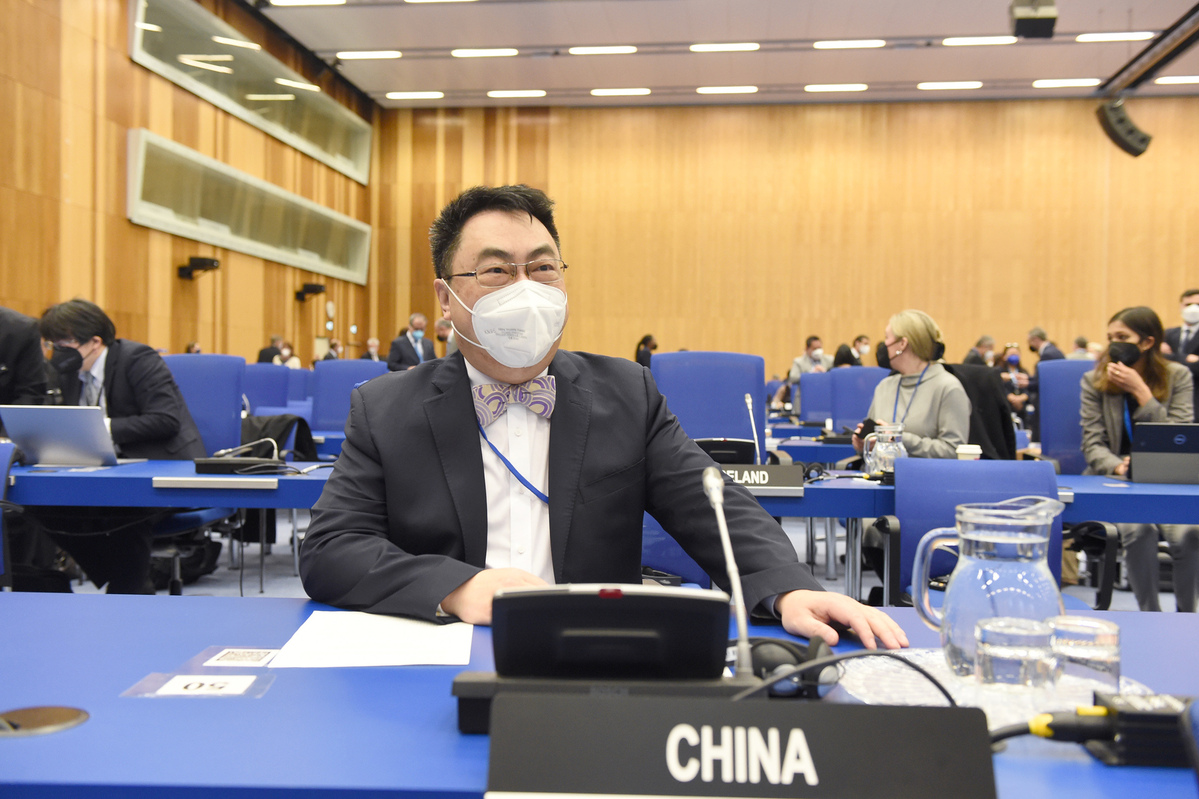
VIENNA - China's Permanent Representative to the United Nations in Vienna Wang Qun on Wednesday expressed concerns for the safety of nuclear facilities in Ukraine.
China supports the International Atomic Energy Agency (IAEA) in performing its duties in accordance with its mandate, Wang said at a meeting convened by the IAEA Board of Governors to discuss the situation in Ukraine.
"Nuclear safety and security are responsibilities of sovereign states," the Chinese envoy said. "The issue of Ukraine's nuclear safety and security should be addressed through existing procedures."
He urged relevant parties to earnestly perform their duties on this issue and called for the IAEA to provide necessary assistance in strict accordance with its mandate.
"Relevant parties should act prudently to avoid unintended nuclear safety and security accidents, and the IAEA should properly handle the issue of nuclear safeguards in Ukraine in consideration of the country's security situation," he added.
He also urged relevant parties to respect the independence and authority of the IAEA and avoid politicizing the agency's affairs.
China will continue to closely monitor the developments in Ukraine and support all efforts conducive to de-escalation and political settlement, Wang said.
